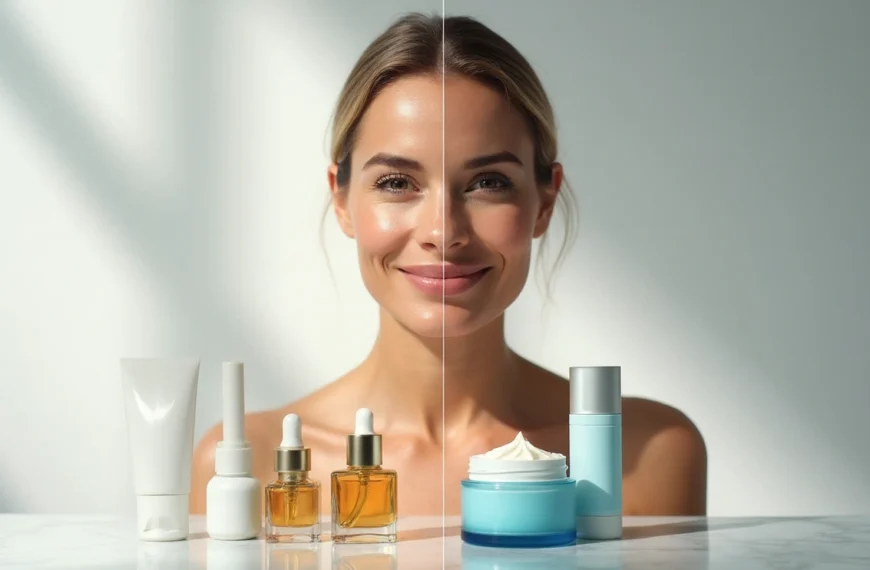The healthcare sector plans to add approximately 1.9 million new positions in the next decade, making hospital jobs more available to people without experience. The United States has over 6,093 hospitals that handle more than 33 million admissions yearly, which has substantially increased the need for healthcare workers.
Healthcare offers stable jobs with competitive salaries without requiring extensive education. A nursing assistant’s average yearly salary reaches $45,853, while medical assistants earn about $46,588 per year. Phlebotomists who specialize in drawing blood samples receive a median salary of $54,271 annually—all these roles need less than a four-year degree. The healthcare industry currently has 8.5 million positions that require less than an associate’s degree, which makes hospital jobs both rewarding and available to inexperienced candidates.
This detailed guide covers the best hospital roles you can get without experience, expected salaries at different positions, steps to land your first healthcare job, and career growth opportunities that can help turn an entry-level position into a rewarding medical career.
Top Entry-Level Hospital Jobs With No Experience in 2025
Image Source: Florida Health Care Academy
The healthcare industry welcomes newcomers through many entry-level positions. These jobs can launch rewarding careers and help medical facilities run smoothly. Here’s a look at the best hospital jobs you can get without experience in 2025:
1. Medical Assistant
Medical assistants handle both clinical and administrative work in healthcare settings of all types. You’ll need a high school diploma or equivalent, and many employers will train you on the job on-the-job training. The core team tasks include taking vital signs, getting examination rooms ready, and helping physicians during exams. Non-certified medical assistants start at around $33,500 per year, while getting certified can boost your earnings by up to 20%.
2. Patient Transporter
Patient transporters help move people between departments using wheelchairs, stretchers, or beds. You just need a high school diploma to start. The job involves helping clinical staff move patients, collecting specimens, and keeping hospital entrances organized. Most positions need BCLS certification, which you can get during orientation.
3. Dietary Aide
Dietary aides prepare and deliver patient meals while keeping the kitchen clean. Most entry-level jobs prefer a high school diploma or food service background but don’t require it. The work includes serving food safely, checking temperatures, and maintaining clean dining areas.
4. Hospital Receptionist
Hospital receptionists welcome and guide patients through their visit. A high school diploma is needed, but people skills and organization matter more than medical knowledge. The job involves scheduling visits, managing records, handling payments, and operating multi-line phones.
5. Medical Biller
Medical billing specialists handle money matters between healthcare providers and insurance companies. You can start with a high school diploma, and training happens on the job. The work includes creating medical claims, working with insurance companies, and setting up payment plans.
6. Home Health Aide
Home health aides take care of people with disabilities or chronic illnesses. Most jobs need a high school diploma, but some don’t. The work includes checking vital signs, giving medications, and helping with daily tasks. The median annual wage was $34,900 as of May 2024.
7. Psychiatric Aide
Psychiatric aides support people with mental health disorders. A high school diploma gets you started, and you’ll learn everything on the job. The work involves watching patients’ conditions, helping with daily activities, and maintaining therapeutic spaces. These aides earned a median wage of $41,590 in May 2024.
8. Medical Scribe
Medical scribes document patient visits and update electronic health records. Experience isn’t needed because employers provide complete training. The role needs good listening skills and attention to detail. This makes it perfect if you plan to study healthcare later.
9. Pharmacy Technician
Pharmacy technicians work alongside pharmacists to dispense medications. Requirements change by state, and some don’t need certification or schooling. Entry-level techs make about $14.11 per hour or $28,220 yearly.
10. Nursing Assistant
Nursing assistants give basic care and support patients with daily needs. Many jobs need just a high school diploma and provide training. This role builds strong healthcare foundations, and you can advance through more education and certification.
What You Can Expect to Earn: Salary Ranges by Role
Image Source: U.S. Department of Labor Blog
Healthcare jobs offer various salary ranges at the entry level, and your earnings can grow as you gain more skills. A clear understanding of pay structures will help you find positions that match your financial goals.
Low-range roles: $30K–$40K/year
Jobs requiring minimal training start in this range. Dietary aides earn about $23,130 per year, while home health aides make between $25,375 and $37,512. Medical transcriptionists who convert doctor’s recordings into formal reports earn $30,725 to $39,090 yearly. Patient services representatives and medical receptionists earn between $35,002 and $41,622.
Mid-range roles: $40K–$55K/year
Your earnings increase with additional training or certification. Medical assistants earn $42,704 to $46,588 annually, and pharmacy technicians make $43,330 to $43,460. Emergency medical technicians earn about $45,119 yearly, and nursing assistants receive between $39,430 and $45,853. Medical administrative assistants ($40,554) and phlebotomists ($43,130 to $48,890) also belong in this category.
High-range roles: $55K–$70K/year
Specialized skills or certifications lead to higher pay in these positions. Medical records specialists earn around $53,690 annually, and laboratory technicians make between $47,272 and $61,669. Occupational therapy assistants earn $61,880 to $66,050, while health information technicians receive approximately $70,260 yearly. Dialysis technicians ($55,840 to $65,009) and medical coding managers ($65,750 to $73,000) round out this range.
Factors that influence salary
Your salary depends on several key factors:
- Geographic location: Urban healthcare jobs pay 7-11% more than rural positions
- Facility type: Government and state hospitals ($132,620) offer better pay than nursing facilities ($99,250)
- Experience level: Each year of experience adds 3-5% to your earning potential
- Education and certification: Advanced credentials can increase your salary by up to 20%
- Shift differentials: Night shift workers receive premium pay rates
How to Land a Hospital Job With No Experience
Breaking into healthcare needs a solid game plan, even for entry-level positions. You can land hospital jobs without experience by showing employers your worth through good preparation and presentation.
Build a healthcare-focused resume
Create a resume that shows off skills that transfer well to patient care settings. Focus on qualities like communication, attention to detail, and teamwork. Match each application with keywords from job descriptions to clear automated screening systems. It might seem tough at first, but showing soft skills like empathy, organization, and reliability will boost your chances. Use a clean format that puts important information up front and describes your relevant experiences clearly.
Get CPR or simple care certifications
Getting simple healthcare certifications shows you’re serious and gives you needed skills. The American Heart Association’s Basic Life Support certification is valuable, especially when you have 60% of healthcare employers who prefer certified professionals. A Certified Nursing Assistant (CNA) program gives you foundational experience that helps you move up to advanced roles. These credentials make your resume stronger and give you practical knowledge you can use right away.
Volunteer or intern at local clinics
Real-world experience through volunteering shows your commitment to healthcare. Community hospitals, university medical centers, and local clinics often run volunteer programs for people interested in healthcare careers. These opportunities let you experience the workplace firsthand and build professional connections that could lead to a job.
Use job boards and hospital websites
Set up profiles on healthcare job boards and create alerts for entry-level positions. Sign up directly on hospital career pages to find positions that might not show up on regular job sites. Look for roles that advertise on-the-job training.
Prepare for interviews with scenario-based questions
Healthcare interviews usually include clinical scenarios to test how well you solve problems. The STAR technique (Situation, Task, Action, Result) helps you organize your answers clearly. Practice working through hypothetical patient situations to show you know how to understand, assess, and handle healthcare challenges.
Career Growth: From Entry-Level to High-Paying Medical Jobs
Healthcare jobs at the entry level can launch rewarding careers if you plan ahead. Hospital staff members can turn their starter positions into six-figure salary roles through targeted education and experience.
How entry-level roles lead to 6-figure careers
The healthcare sector will grow 16% from 2020 to 2030, creating about 2.6 million new jobs. This growth creates natural paths upward for entry-level workers. Medical assistants can become supervisors, and administrative staff can step into healthcare management roles that pay median salaries of $117,960 per year. Nurse practitioners and specialized nursing roles earn more than $129,210 yearly. Healthcare stands out as one of the few fields where you can earn six figures without extensive education at the start.
Examples: CNA to RN, Medical Assistant to Office Manager
The path from CNA to RN shows how far you can go. CNAs who start at $41,270 per year can become registered nurses earning $98,430 annually. Medical assistants often move up to become office managers – educators say this is their most common career path. Long-term care facilities are a great way to get financial help if you want extra education and training for better positions.
Certifications and degrees to think about later
You’ll need extra credentials to move up from entry-level roles. Here are popular options:
- Associate’s or bachelor’s degree in nursing (boosts earning potential by 20%)
- Specialized certifications in medical coding, pharmacy technology, or EKG operation
- Healthcare administration degrees if you want to manage
A master’s in public health (MPH) or healthcare administration can lead to roles paying over $110,680 yearly.
How to plan your career path early
Start by looking into degree programs that fit your current job. Take continuing education courses in advanced areas like patient satisfaction or practice management. Mentorship helps tremendously – experienced professionals can guide you through advancement opportunities. Take on leadership tasks in your current role to show you can manage and build skills for future growth.
Conclusion
The Future Is Bright: Your Path to a Healthcare Career Starts Now
Healthcare stands out as one of the most rewarding career paths for people without prior experience. This piece explores several ways to enter the hospital setting that need minimal qualifications but offer great growth potential.
Healthcare institutions value soft skills and trainability as much as technical knowledge for entry-level roles. On top of that, many facilities offer on-the-job training programs that help newcomers become valuable team members. The salary ranges—from $30,000 to $70,000 even at entry level—make these opportunities financially attractive compared to other industries.
Career advancement remains the most compelling reason to think over hospital employment without experience. Medical assistants can grow into office managers. Nursing assistants can become registered nurses through structured educational pathways. Most employers offer sponsored education and training programs that keep out-of-pocket expenses low.
People ready to start this journey should focus on four key actions. They should build a healthcare-specific resume that shows transferable skills, get basic certifications like CPR, volunteer for practical exposure, and prepare well for scenario-based interviews. These steps boost hiring potential by a lot despite limited experience.
The healthcare industry will create nearly two million jobs by 2030. This growth opens unprecedented opportunities for career starters. Hospital environments offer stability, competitive pay, and clear advancement paths that many other sectors lack. Entry-level hospital positions serve as great launching pads with remarkable long-term potential for both immediate employment seekers and aspiring medical professionals.
Healthcare welcomes people who show dedication and eagerness to learn more than previous experience. This makes it perfect for career changers and new workforce entrants.
FAQs
Q1. What are some entry-level hospital jobs that don’t require experience? Some entry-level hospital jobs that typically don’t require prior experience include medical assistant, patient transporter, dietary aide, hospital receptionist, and home health aide. These positions often provide on-the-job training and can serve as stepping stones to more advanced healthcare careers.
Q2. What salary range can I expect for entry-level hospital jobs? Entry-level hospital jobs generally fall into three salary ranges: low-range roles ($30K-$40K/year), mid-range roles ($40K-$55K/year), and high-range roles ($55K-$70K/year). Factors like location, facility type, and shift differentials can influence exact compensation.
Q3. How can I increase my chances of getting hired for a hospital job with no experience? To improve your chances, focus on building a healthcare-focused resume, obtaining basic certifications like CPR, volunteering or interning at local clinics, using specialized job boards, and preparing for scenario-based interview questions. Highlighting transferable skills and demonstrating enthusiasm for healthcare can also help.
Q4. What career growth opportunities are available in healthcare? Healthcare offers numerous advancement opportunities. For example, a certified nursing assistant (CNA) can progress to become a registered nurse (RN), while a medical assistant might advance to an office manager role. Many healthcare institutions offer tuition assistance and training programs to support career growth.
Q5. Are there any certifications that can help me start a healthcare career? Yes, several certifications can jumpstart your healthcare career without extensive education. Popular options include Certified Nursing Assistant (CNA), Basic Life Support (BLS), Medical Assistant certification, and Pharmacy Technician certification. These credentials can make you more competitive for entry-level positions and provide a foundation for further career advancement.


![Why Online Clinical Psychology PhD Programs Are Better in 2025 [APA-Accredited]](https://consumersweek.com/wp-content/uploads/2025/06/Why-Online-Clinical-Psychology-PhD-Programs-Are-Better-in-2025-APA-Accredited-870x570.webp)











![No Win No Fee Lawyers: The Hidden Truth About Settlement Cuts Legal representation through no win no fee lawyers gives clients a way to fight cases without paying anything upfront. Many clients don't know that these services take a big chunk of money after winning the case. Lawyers usually take 25% to 40% of what you win as their contingency fee. The amount lawyers take from settlements can add up fast. A $100,000 settlement means your attorney gets $30,000 if they charge a 30% fee after winning your case. Your solicitor's cut might be £10,000 from a £30,000 compensation award, based on your agreement percentage. This payment model stays pretty much the same for no win no fee lawyers in different places, though percentages can change. This piece breaks down what you need to know about contingency fee deals. You'll learn about standard fee ranges, extra costs beyond the basic fee, and times when this payment setup might not work in your favor. Smart clients should think over these money matters before signing up with a lawyer to make better choices about their legal help. What No-Win No-Fee Really Means Image Source: Express Legal Funding A no-win no-fee arrangement, also called a Conditional Fee Agreement, changes the way people get legal help. This payment approach removes the need to pay legal fees upfront and creates a partnership between clients and their attorneys. How contingency fees work No-win no-fee agreements are based on contingency fees. Lawyers get paid only when they win compensation for their clients. Most lawyers take between 25% and 40% of the final amount, based on how complex the case is and where it's filed. Lawyers take their cut after winning the case. To name just one example, see a case where a lawyer wins £30,000 in compensation with a 33% fee - they would receive £10,000. On top of that, some law firms use sliding scales where they charge less for quick settlements and more if the case goes to trial. The law requires a written agreement before any work starts. This paperwork spells out the lawyer's percentage, what costs you'll need to cover, and other key details. What happens if you lose the case The meaning behind "no-win no-fee" is clear - losing your case means you won't pay your lawyer anything. All the same, you should know about a few money-related details. You won't owe your lawyer when you lose, but some deals might make you pay for court fees, expert witnesses, or other case expenses. The other side could also ask you to pay their legal costs. Many lawyers suggest getting "After Event" insurance to protect their clients. These policies cover any costs if you lose your case, which makes the no-win no-fee setup much safer. Why lawyers offer this model Lawyers want to make legal help available to more people, so they offer these payment plans. This setup helps people who don't have much money take legal action when they have valid claims. The payment structure motivates lawyers to work hard. They only get paid by winning cases, which pushes them to get the best results possible. Lawyers carefully assess each case before taking it on a no-win no-fee basis. They usually accept cases that have a good chance of winning, since they put in lots of time and resources without any guaranteed payment. The Real Cost: How Much Do Lawyers Take from a Settlement Image Source: Greiner Law Corp. The true cost of no-win no-fee legal representation becomes clear once we look at contingency fees. Many clients feel surprised to see a big chunk of their settlement checks going to their attorney's fees. Typical percentage ranges (25%–40%) No win no fee lawyers typically ask for 25% to 40% of the total settlement amount. Personal injury attorneys usually take 33.3% (one-third) of the awarded compensation[101]. Lawyers and clients agree on this percentage before any work starts on the case. Several factors shape the final percentage. Your chances of winning, case complexity, and the work to be done play key roles in determining the attorney's cut. Some areas have laws that cap the maximum contingency fees for specific types of cases. Sliding scale based on case complexity Law firms often use a tiered fee system that changes with the case stage and complexity. This scale rewards quick settlements while paying attorneys fairly if more work becomes needed. The fee might start at 30% if the case settles before lawsuit filing. This number could climb to 35% after filing or reach 40% if the case goes to trial. Law firms often group cases by complexity: 10%-20%: Simple cases with straightforward settlements 25%-35%: Typical personal injury cases 35% and above: Complex cases requiring extensive resources Examples of payout breakdowns These ground examples show how fees affect settlements: A $15,000 settlement with a 33.3% contingency fee.pdf) puts $5,000 in the attorney's pocket, leaving $10,000 for the client. Similarly, from a $100,000 settlement with a 33% fee, the attorney gets $33,000 while the client receives $67,000[102]. Complex cases tell a different story. A $100,000 settlement with a 30% fee plus $5,000 in extra costs leaves $65,000 for the client after all deductions. These fees substantially change the client's final payout. Hidden Costs You Might Not Expect Image Source: Nelson Personal Injury Lawyers Beyond percentage-based fees, clients often feel surprised by extra costs that can reduce their final compensation by a lot. These hidden costs show up in the fine print of no-win no-fee agreements. You should think over these details before signing. Court filing and expert witness fees Legal proceedings come with unavoidable court filing fees. These charges differ by jurisdiction. They usually range from $30 for small claims to several hundred dollars for complex civil lawsuits. Expert witnesses can be expensive, with hourly rates ranging from $150 to $1,000 based on their credentials and testimony complexity. Expert witnesses charge more for court appearances than consultation work because of added pressure and prep time. Clients might still need to pay experts for their prep work even if the case settles before trial. Medical report and investigation costs Medical documentation is a vital part of many legal claims. These costs include fees to release medical records, create specialized reports, and prepare documents. Investigation costs cover evidence gathering, police reports, witness interviews, and other fact-finding work needed to build a strong case. Of course, some firms say they'll cover these expenses upfront, but clients don't completely avoid these costs. When these costs are deducted from your compensation Law firms take these expenses from the settlement amount before they calculate their percentage fee, though each firm handles this differently. Some lawyers subtract these costs after figuring out their contingency fee, which changes how much money clients end up with. Most firms pay case-related costs during the process and get their money back from the settlement. The defendant usually pays most simple legal costs and disbursements in successful cases, but not always everything. Insurance protects clients from costs in unsuccessful claims at many law firms, but this protection isn't guaranteed. Clients should review their agreements carefully since they might still need to pay specific expenses even if they lose their case. When No-Win No-Fee Might Not Be the Best Option Contingency fee arrangements give many people access to justice. However, this payment model doesn't always work in a client's best interests. Knowing these limitations helps clients make better decisions about their legal representation. Cases with unclear liability Lawyer no win no fee arrangements work best in cases where fault is clear. We assessed the probability of success before taking contingency cases. Lawyers might turn down cases if there isn't enough evidence of the other party's negligence or if liability isn't certain. Cases with multiple responsible parties create more challenges. The situation gets complicated fast when several parties share liability. Lawyers are less likely to take these cases on contingency. They need to be confident they can prove the other party's negligence before accepting a case. Low-damage or low-payout claims Small claims often don't work well with the contingency model, even with real injuries. Cases that have minimal injuries or limited financial damages might not bring enough compensation to cover legal costs. The potential settlement needs to be big enough to pay for investigations, witness interviews and court fees. Personal injury lawyers often turn down cases where the "compensation potential" is too small. This doesn't mean the claim isn't valid - it just means the economics don't add up for a contingency arrangement. Situations where hourly billing may be better Hourly billing has clear advantages in certain cases. Clients see exactly what they're paying for - every hour worked and task completed. This model works well for cases that need lots of attention but don't have clear financial outcomes. Complex litigation with opposing parties works better with hourly billing and a retainer fee. Clients have more control over their case and don't feel pressured to settle quickly. Cases that need extensive preparation but have uncertain outcomes fit the hourly model better. Lawyers can spend the time needed without worrying about contingency limits. This approach often leads to better representation, especially for complex legal issues that need special expertise. Conclusion Understanding the Full Picture Before You Sign No-win no-fee arrangements offer legal representation without upfront costs. Of course, this seems attractive at first glance. In spite of that, you need to think about how these agreements can affect your final compensation. Legal fees usually range from 25% to 40% of your settlement - but that's just the start. You'll face more deductions like court filing fees, expert witness costs, and charges for medical documentation. What looks like a "free" service ends up taking a big chunk of your compensation to cover legal expenses. These arrangements work best in specific situations - cases with obvious liability, substantial damages, and solid evidence. If you have a low-value claim or complex liability issues, traditional hourly billing might serve you better. Without doubt, you should ask for clear explanations of all possible costs before signing anything. Read the fine print closely, especially when you have to deal with expenses in unsuccessful cases. Ask to see sample settlement breakdowns that show all deductions. This helps you picture what you might actually take home. Your choice to go with a no-win no-fee arrangement depends on your situation. This model helps if you don't have money to pursue valid claims. But if you have a strong case and enough funds, other fee structures might let you keep more of your compensation. Whatever payment model you choose, knowing exactly how much lawyers take from settlements helps you make better decisions. This knowledge lets you approach legal representation with real expectations and better control over your money. FAQs Q1. What percentage of a settlement do no-win no-fee lawyers typically take? No-win no-fee lawyers typically charge between 25% to 40% of the final settlement amount as their contingency fee. The exact percentage often depends on the complexity of the case and the stage at which it is resolved. Q2. Are there any hidden costs in no-win no-fee arrangements? Yes, there can be additional costs beyond the lawyer's percentage fee. These may include court filing fees, expert witness costs, medical report expenses, and investigation costs. These expenses are usually deducted from the settlement amount before or after the lawyer's fee is calculated. Q3. What happens if I lose my case in a no-win no-fee arrangement? If you lose your case, you generally won't have to pay your lawyer's fees. However, you might still be responsible for certain expenses like court costs or the opposing party's legal fees. Many lawyers offer insurance to protect clients from these potential costs in case of an unsuccessful claim. Q4. When might a no-win no-fee arrangement not be the best option? No-win no-fee arrangements may not be ideal for cases with unclear liability, low-value claims, or complex legal issues requiring extensive preparation. In these situations, traditional hourly billing might be more appropriate and potentially more cost-effective for the client. Q5. Can I negotiate the percentage a lawyer takes from my settlement? Yes, the contingency fee percentage is often negotiable. It's typically agreed upon and formalized in writing before the lawyer begins working on your case. Don't hesitate to discuss the fee structure with your lawyer and ask for a detailed breakdown of potential costs and deductions.](https://consumersweek.com/wp-content/uploads/2025/06/No-Win-No-Fee-Lawyers-The-Hidden-Truth-About-Settlement-Cuts-870x570.webp)


